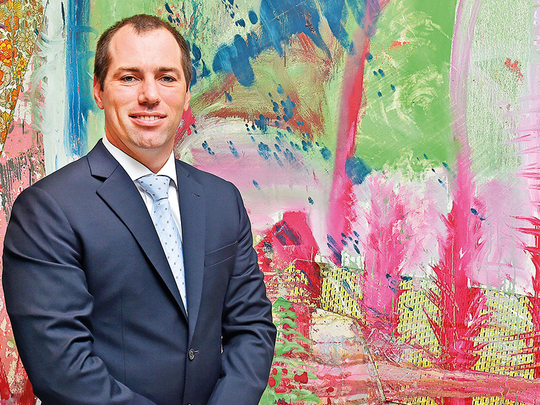
Dubai: Investments of $150 million into the UAE property market last year and more to follow this year and in the coming ones. And that’s just the commitment put up by one entity — ENBD Reit (real estate investment trust).
- Anthony Taylor | Head of Real Estate at Emirates NBD Asset Management.
But when it comes to having a high profile to match such investments, the UAE’s Reits still have lots of work to do. It could all change with the upcoming “mortgage law” in Dubai and the focus it will have on creating opportunities for institutional funds to seek a higher exposure. And a profile to match that.
“One of the biggest challenges for Reits in the UAE is getting all of the different regulations to work together,” said Anthony Taylor, Head of Real Estate at Emirates NBD Asset Management. “Reits as a category needs to be heavily regulated.
“It’s important that certain processes are in place for all Reits — independent valuations are very important. The distribution of net income needs to be clearly identified.
“Investors are having different experiences with the different Reits. There needs to be a certainty investors will receive income from their assets. At the end of the day, Reits receive rental income and pay out dividends — there’s nothing more than that.”
For the uninitiated, Reits pool investments from multiple investors to pick up stakes in property, preferably commercial assets and those either complete or nearing the ready market. The other big requirement that reit managers have is that the properties they pick have committed long-term occupancies.
ENBD Reit is only one of two such listed on Nasdaq Dubai, though there are already a handful of others operating in the UAE. Market sources say the new mortgage law could tighten the requirements on Reit listings.
According to Taylor, it is a misconception that Reits can easily generate new funds from institutions and high net worth individuals in the UAE. “A lot of the family offices and institutions in the UAE already have strong real estate holdings,” he said. “Their requirement for an exposure to a product like a Reit is not necessarily there today.
“We target GCC investors looking for yields in other countries. And typically, these investors do not have a foot on the ground in terms of asset management and it makes sense to come through a Reit. During our IPO, where we raised $105 million, we had a lot of Saudi funds coming in.” (Saudi Arabia itself is having a Reit moment of sorts, passing legislation that could see more of them emerge from the pipeline and take active exposure within the kingdom. In other words, it could provide still competition for funds.) For the moment, ENBD Reit will stick to opportunities within the UAE. “Real estate will always be a local play,” said Taylor. “You really need to do your time in that market if you have plans to move to a new jurisdiction.
“We are looking to do further capital raises for the product we have today — potentially between $100 million to $200 million. The timing need to be right.
“What we need to now is fully deploy the proceeds and leverage available to get the most efficient capital structure for our investors. We are 80-90 per cent there.
“After the $150 million of acquisitions last year … we still have a bit of appetite to do some more this year. “ Currently, the ENBD Reit portfolio stands at $460 million of assets against $300 million of equity. Apart from buying commercial properties, the fund manager is also intent on getting into “development opportunities”. “We could set up a different product which has a bit of development angle to it, and bring these assets into the Reit once they are complete. The Reit is always about income producing assets.
“When we are looking at a development that is two years away, sometimes it makes sense to put it into a separate product and build up the product.” (As of now, 94 per cent of its portfolio is made up of completed products.) Has the soft property market made it cheaper to pick up properties, even the types a Reit would be interested in? Taylor, for one, believes such a connection does not exist, at least to date.
“We have certainly seen more opportunities in the last two years, but the institutional market — which is where Reits operate — has not softened by the same extent as retail (single individual) buying.
“Reits typically look at picking up assets of Dh50 million and over and ideally of Dh100 million plus. In that space, the prices have not come down, not even on residential towers that are single-owner owned. No, we have not been seeing significant distress selling.”
Mixing and matching to investor needs
■ Launched in 2005, ENBD Reit currently operates its investments strictly on a Shair-compliant basis. But it could be open to the idea of launching a conventional fund provided opportunities and investor interest exists, according to Anthony Taylor of Emirates NBD Asset Management.
■ Of its current portfolio, 100 per cent is invested in Dubai. “We previously held assets in Sharjah, but these were sold in 2015-16. We are looking to reinvest that money in areas of New Dubai, where we see lots of infrastructure spend coming through in the next two years, and in Abu Dhabi too.”
■ For the 12 months ended March 31, ENBD Reit’s net asset value was $300 million. The total value of its property portfolio was $463 million, an increase of $147 million from the previous year. Total loans stood at $168 million at a loan-to-value ratio of 36 per cent.











